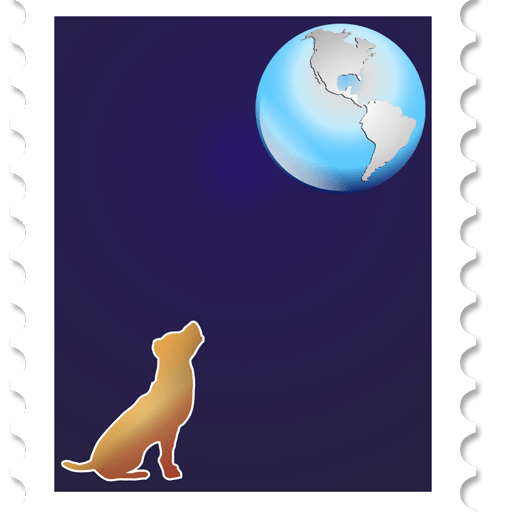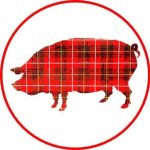Building a Tin Umbrella for Hillman City’s Coffee Lovers
What do you do when not one, not two, but three cars hit you within a five month period? Most people might relegate themselves to ordering takeout, getting groceries from Amazon Fresh, and watching hours of the Real Housewives of Wherever. Not so for the indomitable spirit that is Joya Iverson. Instead of becoming a reclusive couch potato she started a business that allowed her to walk two blocks to work: Tin Umbrella Coffee in south Seattle’s Hillman City.
Prior to opening Tin Umbrella, Joya Iverson had a successful career as a marketing consultant. Her true passion was for traveling the world and experiencing different cultures. Adventurous and fiercely independent, she spent much of her free time traveling on her own in places like Nicaragua, Indonesia, and Ethiopia.
That all changed in February of 2012 when she was in a head on collision on her way to a ski trip to Mt. Baker. Unable to travel much less get around town, Iverson had to make some radical changes in her life. Sensitive to light and unable to read, she spent many days learning to play the ukulele while wearing an eye mask. Bob Marley’s Three Little Birds kept her positive with the familiar refrain “don’t worry about a thing…” — all while thinking about her life and career.
Later the same year she was in a second minor car accident while driving; then in July she was hit by a car while walking across a parking lot. Iverson shares her story with Eater and talks about how a data-driven analyst becomes a community-minded cafe owner in an emerging neighborhood in South Seattle.

The joys of learning how to make espresso once you’ve decided to open a coffee shop…
Why is world travel so important to you?
I’d always wanted to travel and never had. I’d been very focused and driven in my 20’s — working full-time, taking 20 credits at UW, learning about writing, dot-com work, and saving for a house. I started my own agency at a time when it was hard to leave the security of the corporate world — especially when the industry was getting gutted in 2008. But I felt that if I lost it all I’d have time to rebuild.
So, I spent the next four years traveling and working independent of location. I also have this thing where I’m like, “if there’s a thing you say I can’t do I want to do it.” So, much of my travel was more extreme — the remote Canadian Rockies, riding half-wild ponies in Nicaragua, alone in the Ethiopian countryside. I’m grateful for the experiences I’ve had though half the time I wasn’t totally sure why I was doing the things I was doing!
How did the accidents change your view on life?
Sometimes you choose things in life and sometimes life chooses you. It was the hardest, most difficult thing I’ve ever been through. I was hit head on at 60 miles an hour. One second I was fine and the next I wasn’t. I hit my head and walked away with my life. I joke that it’s ‘all in my head’ because it was.
At the time, I’d been planning to go back to Ethiopia and had a one way ticket to Addis Ababa. Then it happened. The beautiful thing was all these photos and memories of my travel were slide showing across my mind. I just wanted to live. I was just sitting there thinking — thank God I lived. I hadn’t spent all my time in a cubicle. I got my wish to live.
I hit my head and walked away with my life. I joke that it’s ‘all in my head’ because it was.
What was it like traveling alone?
As a woman alone, when you put it all out there, it can be scary/thrilling. I had no idea, plans, or friends with me. I thought, “If I get there and it’s horrible I can get on a plane and come back.” This was a chance to live and see how other people lived. To become part of the fabric. Not be a literal tourist.
How did your experiences impact how you work?
After the accidents I spent a year thinking about doing meaningful work. The big lesson was to learn to use what I had — to make something out of what was available. I made lists of things I was good at, things I loved, things I was now able to do. I was good at data and business modeling and I needed to pivot out of my marketing career. Leaving the agency was difficult but I realized that I would rather choose to jump than be pushed off ledge.

Iverson’s travel photos adorn the walls at Tin Umbrella
So why a coffee shop in Hillman City?
I have always loved coffee. I had no idea why I’d picked the countries I traveled to but I realized afterwards that they were all coffee related. Ethiopia has 3,000 years of coffee culture. I had stayed in Nicaragua on a coffee farm. Every time I’d come home to Hillman City I would understand a bit more about the local culture, the people, and my surroundings.
Why Hillman City? For one, I could walk this far to work. Sure, there are easier places to open a cafe. But to me, those neighborhoods are a well beaten path. Hillman City is like the road less travelled. It was the only neighborhood in Seattle without a cafe. I started thinking about the Field of Dreams quote, “If you build it, they will come.” So, I just went for it.
Did you have any experience in the coffee business before Tin Umbrella was opened?
I had never made coffee other than in my home. People ask me what my biggest fear was in opening Tin Umbrella and I tell them — it was learning how to make coffee after I’d already opened a coffee shop!
What’s special about Hillman City?
It’s not about the coffee it’s about building something for the community. In this neighborhood abandoned buildings outnumbered the ones that are occupied. This building (where Tin Umbrella is located) was an illegal gambling den. The SWAT team came in here, mattresses were being dumped here — it wasn’t pretty. The support from our local community as well as others in the Seattle Coffee community has been overwhelming and it just rippled out — I can’t put my appreciation into words.
In this neighborhood abandoned buildings outnumbered the ones that are occupied.

Iverson – consultant cum barista at Hillman City’s only cafe – Tin Umbrella
What have you learned about running a coffee shop in Seattle that has surprised you?
There’s the list of things that have been dropped off at Tin Umbrella. Sections of rotten fence, big screen TVs, bean bag chairs, rotted firewood, roller blades, and grocery carts. Early on, we were surrounded by abandoned buildings and kind of on our own. It’s comical — you just try to keep your humor.
Is there anything you would have done differently?
Well, I built out the business plan and realized that being a coffee roaster was the number one thing we needed to do to make Tin Umbrella profitable. I soon realized the logistics of setting up a roastery in an old building were more overwhelming than I could imagine. And money was going out the door so I decided to open the shop first and delay the roastery until later.
On some level personally this is me trying to make the best of a bad situation. Hopefully we’ll be able to build the demand to a point where I can travel and source the supply.
What’s the craziest thing that has happened to you so far?
One of the first days after I’d opened the shop — we had just gotten our new sign out front. I get this phone call telling me that our sign had been knocked down. By the time I got here, two of our regular customers had brought their ladder and were already attaching the sign back to the building. People just want to help and want to contribute to our success.
What benefits are you seeing in the neighborhood?
Neighbors are meeting neighbors for the first time even though they’ve lived near each other years. Good people are meeting others with similar interests. We’ve become this community hub. I also don’t want to out price people. I will not bring in overpriced stuff that local people can’t afford to buy. I want anyone to be able to walk in here to afford something.
Why the name Tin Umbrella?
I have yet to come up with a really simple answer. It’s the name of my old agency. To me, it reflects simplicity and a shelter for good things. When traveling I would find myself in these corrugated tin roof shelters. And I loved the sound of rain on the roofs. It’s kind of Seattle, kind of global: We provide comfort and shelter. It fits.
* Portions of this story originally appeared on Eater Seattle. All photos credited to Suzi Pratt.





And she’s every bit as real as you describe her!! Go Joya!
Admirable strength!